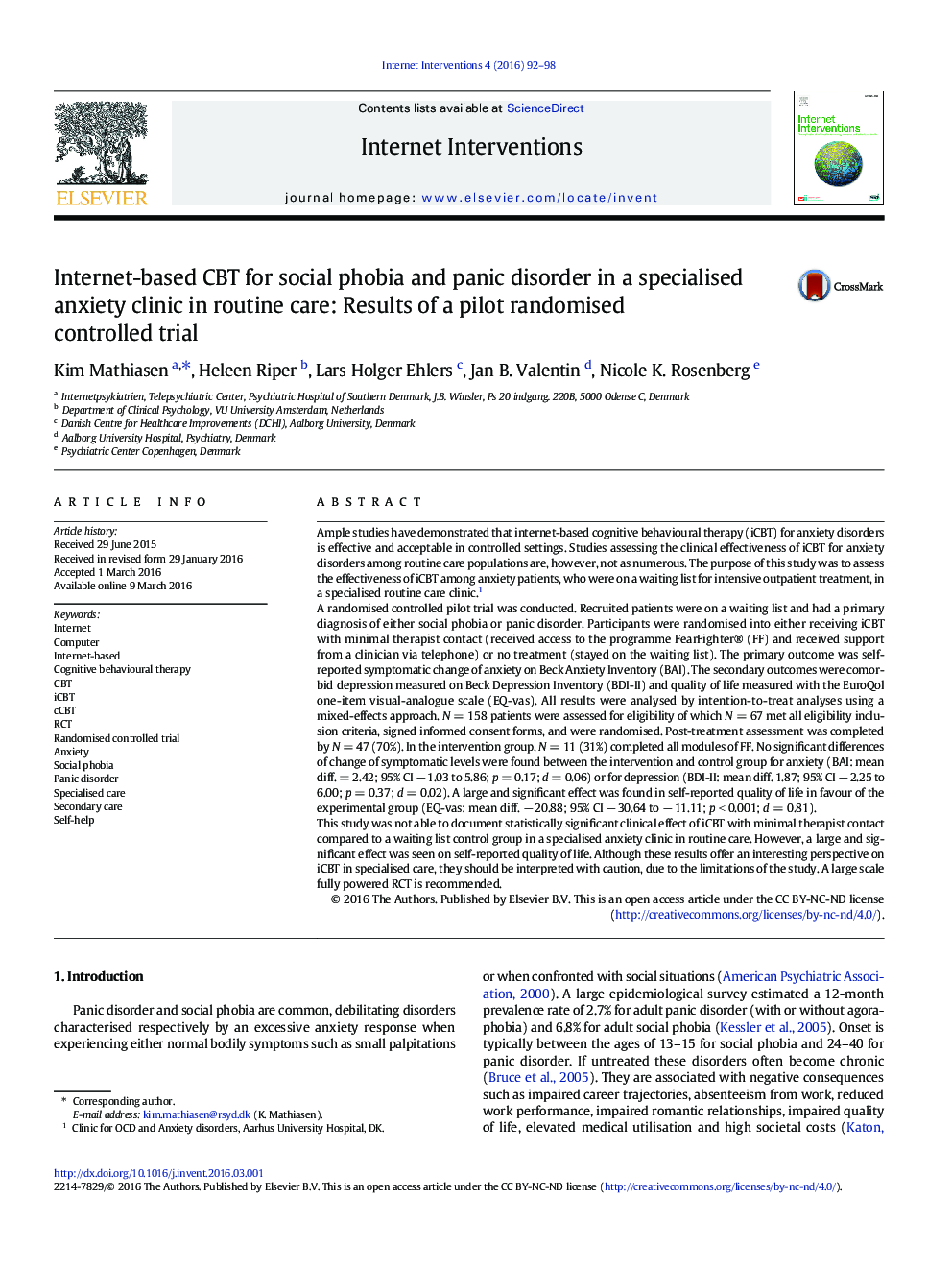| کد مقاله | کد نشریه | سال انتشار | مقاله انگلیسی | نسخه تمام متن |
|---|---|---|---|---|
| 554880 | 873910 | 2016 | 7 صفحه PDF | دانلود رایگان |
• Effectiveness of iCBT for anxiety was investigated in specialised care
• 67 adult anxiety patients were randomised to either waiting-list or iCBT
• No significant difference was found post treatment on symptomatic levels of anxiety
• A large and significant difference was found on self-reported quality of life
Ample studies have demonstrated that internet-based cognitive behavioural therapy (iCBT) for anxiety disorders is effective and acceptable in controlled settings. Studies assessing the clinical effectiveness of iCBT for anxiety disorders among routine care populations are, however, not as numerous. The purpose of this study was to assess the effectiveness of iCBT among anxiety patients, who were on a waiting list for intensive outpatient treatment, in a specialised routine care clinic.1A randomised controlled pilot trial was conducted. Recruited patients were on a waiting list and had a primary diagnosis of either social phobia or panic disorder. Participants were randomised into either receiving iCBT with minimal therapist contact (received access to the programme FearFighter® (FF) and received support from a clinician via telephone) or no treatment (stayed on the waiting list). The primary outcome was self-reported symptomatic change of anxiety on Beck Anxiety Inventory (BAI). The secondary outcomes were comorbid depression measured on Beck Depression Inventory (BDI-II) and quality of life measured with the EuroQol one-item visual-analogue scale (EQ-vas). All results were analysed by intention-to-treat analyses using a mixed-effects approach. N = 158 patients were assessed for eligibility of which N = 67 met all eligibility inclusion criteria, signed informed consent forms, and were randomised. Post-treatment assessment was completed by N = 47 (70%). In the intervention group, N = 11 (31%) completed all modules of FF. No significant differences of change of symptomatic levels were found between the intervention and control group for anxiety (BAI: mean diff. = 2.42; 95% CI − 1.03 to 5.86; p = 0.17; d = 0.06) or for depression (BDI-II: mean diff. 1.87; 95% CI − 2.25 to 6.00; p = 0.37; d = 0.02). A large and significant effect was found in self-reported quality of life in favour of the experimental group (EQ-vas: mean diff. − 20.88; 95% CI − 30.64 to − 11.11; p < 0.001; d = 0.81).This study was not able to document statistically significant clinical effect of iCBT with minimal therapist contact compared to a waiting list control group in a specialised anxiety clinic in routine care. However, a large and significant effect was seen on self-reported quality of life. Although these results offer an interesting perspective on iCBT in specialised care, they should be interpreted with caution, due to the limitations of the study. A large scale fully powered RCT is recommended.
Journal: Internet Interventions - Volume 4, Part 1, May 2016, Pages 92–98
